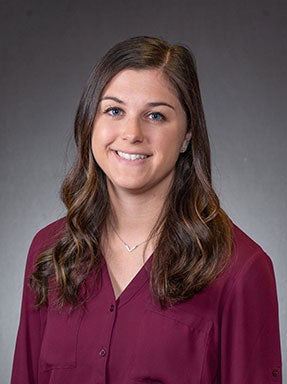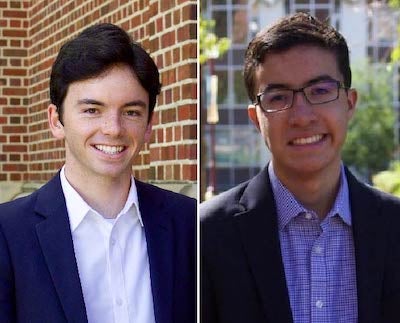Student Research Guides Homelessness Task Force in 3 Colorado cities
For Zach Marshall and Andres Pulido, their undergraduate learning experience goes beyond the classroom and into the community. For the past year and a half, they have been working on a study examining homelessness in the Colorado cities of Littleton, Englewood and Sheridan. Now, the cities will use their report to guide their responses to people experiencing homelessness.
“We saw there were a lot of organizations doing good work, but not a lot of time to collaborate between organizations,” Marshall explains. “We wanted to help organizations collaborate, be more efficient and use resources more wisely.”
Both students are members of DU’s Pioneer Leadership Program (PLP), led by Linda Olson, who is also the mayor of Englewood. She saw how their work aligned with efforts in the Tri-Cities, whose committee focusing on homelessness offered Marshall and Pulido the chance to take on the discovery stage of the research.
“It’s really impressive,” Olson says. “They filled a huge gap that we actually didn’t even know we had until we hit it. It was definitely a service to the cities that is allowing us to move forward with our plan.”
Marshall and Pulido spent months gathering information and looking at the issue from many different angles. To ensure they captured as many facets of the problem as possible, they used a PESTEL analysis, which breaks downs the political, economic, social, technological, environmental and legal aspects, and presented their findings to the Tri-Cities Homelessness Policy Committee. “I learned the importance of having a 360 view on an issue,” Pulido says.
As Olson sees it, this project is exactly the type of experience she fosters and encourages in PLP.
“It’s the quintessential learning experience for a student — to be able to take theory and think about an issue they care about and then apply all kinds of critical thinking skills and work collaboratively across entities,” Olson explains. “I wish for everyone to have this kind of experience.”
Olson says the committee — made up of mayors, chiefs of police, city attorneys and mangers, nonprofits and more — will use this report to create an action plan.
“It was such a great experience,” Marshall says. “The important part is the approach and mindset you learn from PLP. We did our best to not charge into a community and issue area without knowing the people involved. The biggest issue is the dehumanization of people experiencing homelessness. They are people, and very wise people.”
Like Marshall, Pulido credits PLP with encouraging community involvement and enhancing his education.
“I think PLP has fundamentally changed my undergraduate experience, teaching me to not only think about leadership, but to apply those lessons in the community,” Pulido says. “PLP really accelerates ideas, and you can impact the community with what you learn.”
Click here to read their full report, “Tri-Cities Policy Task Force on Homelessness PESTEL Analysis.” This report was supported by the DU Grand Challenges' Advancing Community Engaged (ACE) Student Scholarship Grant Program, which funds students doing community-engaged research that are co-developed with community partners.









